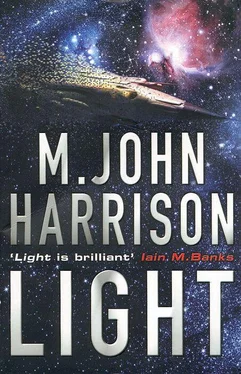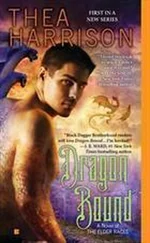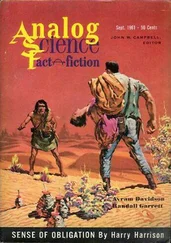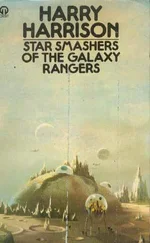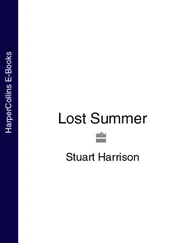When Ed explained his purpose the whole thing took on a curiously formal air. She asked him for his details, which except for his name he made up. She asked him: what he could do. That was easier.
'Fly any kind of ship,' he boasted.
The receptionist pretended to look out the window.
'We don't need a pilot momentarily,' she said. 'As you can see, we're on the ground.'
'Sunjammers, deep freighters, star ships, dipships. I've been there,' Ed went on, 'and flown it.' He was surprised how close to the truth this was. 'Fusion engines to dynaflow drivers. Some stuff I never knew what it was, Earth controls bolted onto alien equipment.'
'I'm sympathetic,' the receptionist said. 'But is there anything else you can do?'
Ed thought.
'I rode navigator on Alcubiere ships,' he said. 'You know, the big ones that bunch reality up in front of them as they go? It's like a ruckle in cloth.' He shook his head, trying to visualise the Alcubiere warp. 'Or maybe not like that at all. Anyway, space gets wrenched, matter gets wrenched, time goes out the window with everything else. Close into the ship you can just about survive it. The navigators surf that part of the wave. They go out in EVA pods and park in the warp, trying to see what's next. One thing they can see from there, it's their lives flushing away in front of them.'
He felt bleak now when he talked about it. 'They call it the bow wave,' he explained.
'The kind of jobs we have-' the receptionist began.
'You see some weird shit as a navigator. It looks like all these silvery eels, under the sea. Migrating. It's some kind of radiation, that was how it was explained to me, but you don't see it as that. Your life kind of leaks away as eels under the sea, and you watch it go. Afterwards,' Ed said, 'you can't work out why you'd do a job like that.' He looked at his hands. 'I surfed that wave and a few others too. Anyway, I can fly any kind of rocket. Except K-ships of course.'
The receptionist shook her head.
'I meant,' she said, 'can you do anything like stack crates, clean up after animals. That kind of work.' She consulted the terminal again and added: 'Or prophecy.'
Ed laughed. 'Pardon?'
She regarded him evenly.
'Telling the future,' she explained, as if to someone who didn't know the word but was bright enough to learn it.
Ed leaned forward and looked into the terminal.
'What is going on in there?' he said.
Her eyes were a confusing colour. Sometimes it was jade, sometimes the green of a salt wave; sometimes, somehow, both at once. There were dots of silver in her pupils which seemed ready to break up, drift away. Suddenly, she switched off the terminal and stood up as if she had to be somewhere else and had no more time to talk to Ed. Standing up, she seemed taller and younger, though some of it was shoes and she still had to look up to make eye contact. She wore a pale denim jacket with cowboy pockets and patterns of rhinestones, and a black patent-leather tube skirt. She smoothed the skirt across the front ofher thighs and said: 'We're always on the lookout for a prophet.
Ed shrugged. 'I was never interested in that,' he said. 'With me it was more a question of not knowing the future. You know?'
She gave him a sudden warm smile.
'I imagine it was,' she said. 'Well, talk to her. You never know.'
'Talk to who?'
The receptionist finished smoothing her skirt then went to the door. Her back swayed, balancing the big hair. This gave her an interesting gait, Ed thought, for an older person. Curiously enough, he seemed to remember that walk. He followed her out and stood at the top of the steps, shading his eyes. It was full morning now. Maritime light was spraying up off the naked concrete, maritime light and heat to daze and irritate the unwary.
'Talk to who?' he repeated.
'Madam Sandra,' she said, not turning round.
For some reason this name made him shiver. He watched the receptionist walk away across the site towards the Circus of Pathet Lao in its blinding white carnival tent.
'Hey! So where do I find her?' he called.
The receptionist kept walking.
'Madam Sandra finds you, Ed. She finds you.'
Later that morning he stood on the dunes looking out to sea. The light was harsh and violet. Little red-throat lizards scuttled through the marram at his feet. He could hear saltwater dub basslines, bumping away in some cocktail lounge further down the access road. In front of him a faded sign on a tilted wooden post in the sand announced 'Monster Beach'. You couldn't tell which direction it was pointing, but Ed thought it was straight up. He grinned. Beats me, he told himself; but he was thinking less of the beach sign than of the elusive Sandra Shen. He was hungry again. On his way back to Annie Glyph's room, he heard some sounds he recognised issuing from the bar of the deserted Dunes Motel, a clapboard box in a weedy oyster-shell lot a little apart from the motel itself.
Ed stuck his head round the open door, out of the frying light and into the cool gloom inside, where he found three skinny old men in white caps and bronze polyester pleat-front trousers too big for them, throwing dice onto a blanket on the floor.
'Hey,' said Ed. 'The Ship Game.'
They looked up at him without interest, down again immediately. Their eyes were like dark brown studs, the whites curded with age. Neat stained moustaches. Skin coffeed by sunlight. Thin big-veined hands which looked fragile but weren't. Lives lived out slower and slower, steeped in the preservative of Black Heart Rum. Eventually one of them said in a soft, distant voice:
'You to pay to play.'
'It's the narrative of capital,' Ed agreed, and reached in his pocket.
The Ship Game-
Also known as Entreflex or Gobetween, this full-on collision of jacks and craps-with its hair-trigger jargon, its bone pieces like dead men's knuckles, its twelve coloured characters nobody really knew the meaning of any more-was endemic. It was galaxy-wide. Some said it arrived with the New Men, aboard their flagship the Remove All Packaging. Some said it originated on the ancient trundling sublight ships of the Icenia Credit. It was a pastime which had seen many forms. In the present one, an ironic subtext to everything that happened in empty space, the characters, and the names the players gave them, were supposed to represent the notorious N = 1000 Engagement, an early human/Nastic encounter during which, faced by the sheer number of events and conditions in fight-space-so many ships, so many dimensions to misappropriate, so much different physics to hide behind, so many nanosecond strategies in operation at once-the EMC admiral Stuart Kauffman abandoned the Tate-Kearney transformations and simply threw dice to decide his moves. Ed, who saw it less as a subtext than a source of income, had played the game all his adult life, the first ship he stowed away on to the last ship he jumped. The soft voices of the old men filled the bar.
'Give me an overend.'
'You don't want no overend. You fucked.'
'So tell me now, what you think to that?'
'I think you double-fucked.'
Ed laid down his money. He smiled across the blanket and bid Vegan Snake Eyes.
'That get you in the water,' acknowledged the old men.
He blew on the dice-they were heavy and cool to the touch, some smart alien bone that would leach the heat of your hand, the energy of motion, to change the characters as they fell. They scattered and tumbled. They jumped like grasshoppers. Symbols fluoresced briefly- interference patterns, ancient holographies blue, green and red- as they passed through a slanting bar of light. Ed thought he saw the Horse, the Tract, a clipper ship in a tower of cloud like smoke. Then the Twins, which gave him a sudden shiver. One of the old men coughed and reached for his rum. A few minutes later, when money began to change hands, there was a brusque but reverent air to each transaction.
Читать дальше
